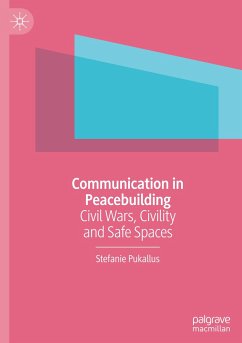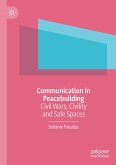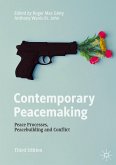This book is concerned with the role that communication - understood as including both the factual and fictional mass media as well as the performative and visual arts - can play in post-civil war peacebuilding. It engages with questions of how a society can move from the civil war conditions of discursive dehumanisation to peaceful cooperation in post-civil war settings and how peacebuilders can help communities utilise the transformative capacity of communication to encourage the reimagining of and engagement with former enemies as co-citizens. Ultimately, civil and peaceful cooperation depends on the observance of discursive civility and the building of safe discursive spaces in which civil engagement between different groups of society (including former combatants and survivors) can safely take place. This book argues that understanding communicative peacebuilding in this way is fundamental to the achievement of self-sustainable everyday peace.








